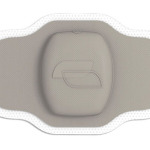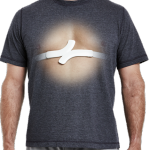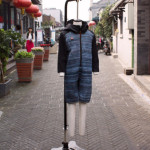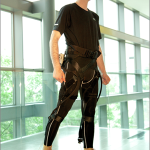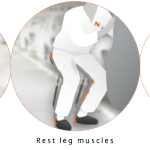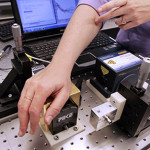We're just catching up with an interesting article about wearables in the Journal of the American Medical Association. Doctors Mitesh S. Patel, David A. Asch, and Kevin G. Volpp, all of the Philadelphia VA Medical Center, suggest that "concepts from behavioral economics" might be key to getting people to continue involvement with their wearable tech for longer than the current … [Read more...]
Proteus, Oracle Reach Deal to Manage Clinical Trials
We love the idea behind Proteus Digital Health, not least because of all the data that it can gather for clinical trials. So, presumably, does Oracle, which led a $45 million funding round nearly two years ago. Now comes news that adherence data gathered by Proteus will integrate directly into Oracle Health Sciences data cloud. The idea is that Proteus will use its patch and … [Read more...]
Could the GoBe Actually Work as Advertised?
The story of the Healbe GoBe is not a pretty one. The company crowdraised $1.1 million for the wristworn calorie counter and has blown multiple delivery dates while fighting back allegations that its central claim -- to measure caloric intake -- is nonsense. The BBC more or less cornered the company's CEO at CES last week and challenged him to a demo once and for … [Read more...]
Qardio ECG Monitor Wins CES Innovations Award
We like Qardio's blood pressure monitor, a cuff that connects with your phone via Bluetooth and tracks your pressure over time (and location -- a new addition to its app). In particular, the ability to share your results with doctors is exactly where consumer health tech ought to be moving. Today, Qardio announced that its new QardioCore ECG monitor won CES 2015 Innovation … [Read more...]
High-Tech Clothing Purifies the Air Around You
When we talk to people in the fashion industry (which, us being in New York, is pretty frequently), we often issue a challenge: for all of history, clothing has been about decoration and protection. What can technology do that will either enhance those functions or add another? Here's one answer: clothing that can clean the air around its wearers. Pollution is a big … [Read more...]
Texas Med School Looks at Whether Trackers Can Actually Help Your Health
The University of Texas Medical Branch at Galveston has taken a hard look at 13 fitness trackers to determine if they're likely to actually help people improve their health. researchers found that most of them do, although none do everything they might to help their wearers past frequent problems. (Scroll down the linked page to read the full report.) The researchers found … [Read more...]
“Soft Exosuits” May Enhance Wearers’ Mobility, Help Soldiers Carry More
We wrote not long ago about strap-on leg supports designed for factory workers. The idea of exosuits is apparently very much in the air; researchers at Harvard, backed with DARPA money, are working on clothing that can provide a lesser and more flexible form of joint support when needed. A team led by Conor Walsh at the Wyss Institute for Biologically Inspired Engineering … [Read more...]
Noonee Chairless Chair Exoskeleton Lets You Sit Anywhere
The Swiss startup Noonee is building a device that straps onto your legs and shoes, and lets you sit down anywhere you want. The company pitches it as a "posture support device," which has a nice ring to it. The thing is a five-pound carbon fiber and aluminum device that you put behind your legs; it's jointed at the knees and has pads at the buttocks. You can assume whatever … [Read more...]
Researchers Use Mid-Infrared Laser to Measure Blood Glucose Levels
This isn't so much about a current wearable product, but we're betting it's a technology you'll be seeing pretty soon. Researchers at Princeton University have developed a new approach that uses mid-infrared light to measure blood glucose levels without the need for a blood stick. Wearables that monitor heart rate typically use LEDs that transmit near-infrared light, with a … [Read more...]
Could Fitness Trackers Lead the Way To Good Medicine?
Medical grade wearable tech tends to track one thing at a time with great accuracy; Holter monitors record heart rhythms for 24 hours in detail. Consumer grade wearables track lots of things but less accurately; that's why they generally don't pursue FDA approval. An interesting essay in Information Week puts out the possibility that those two strands of medical devices might … [Read more...]
